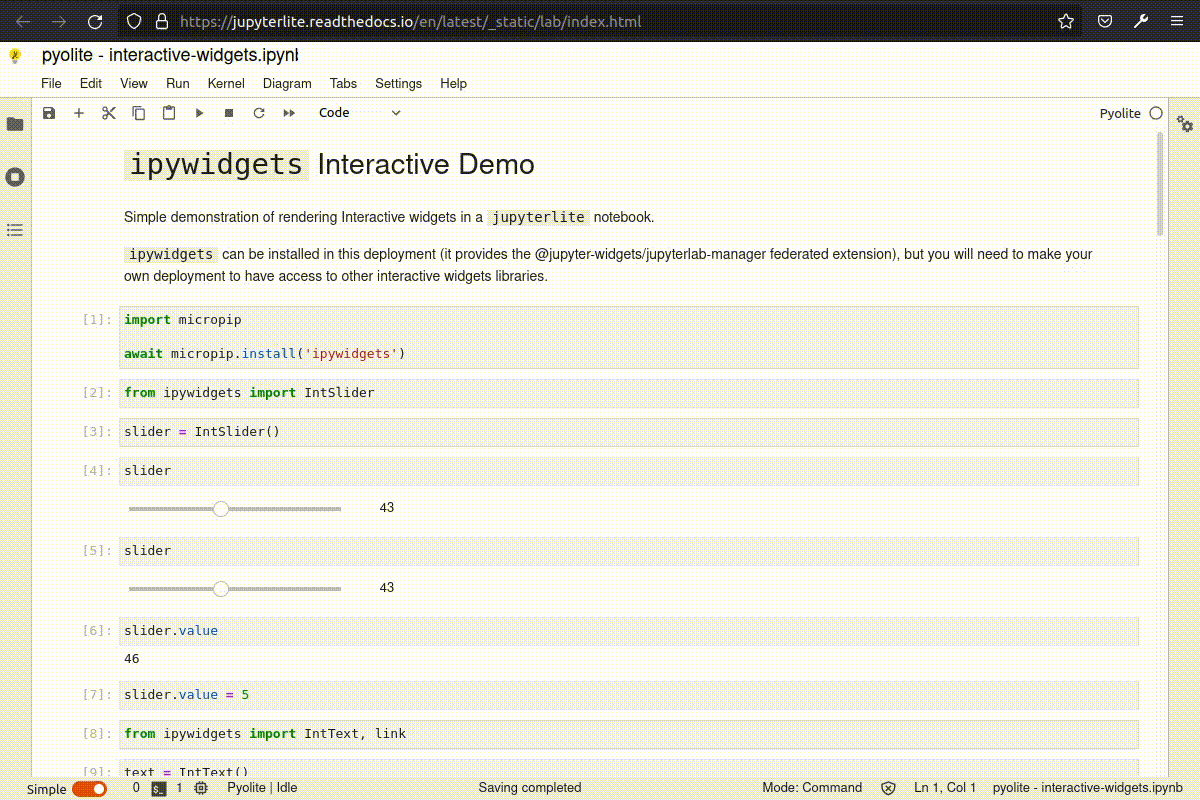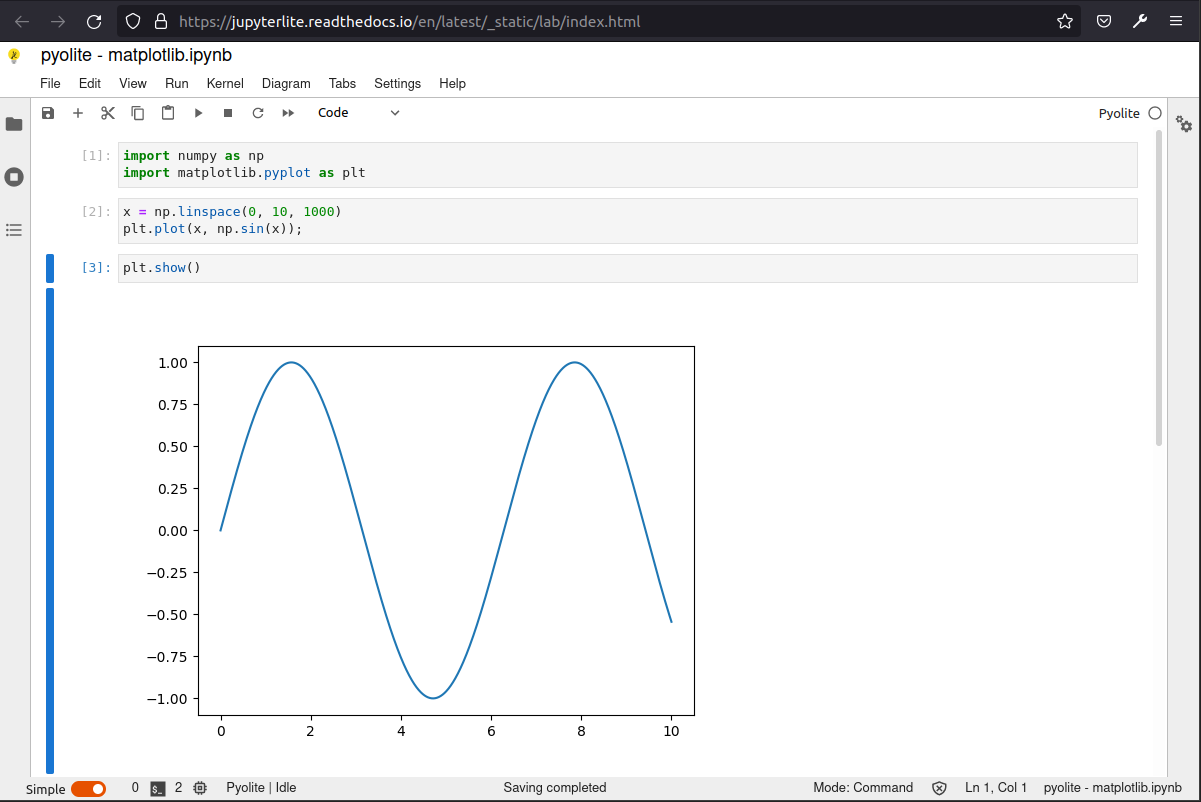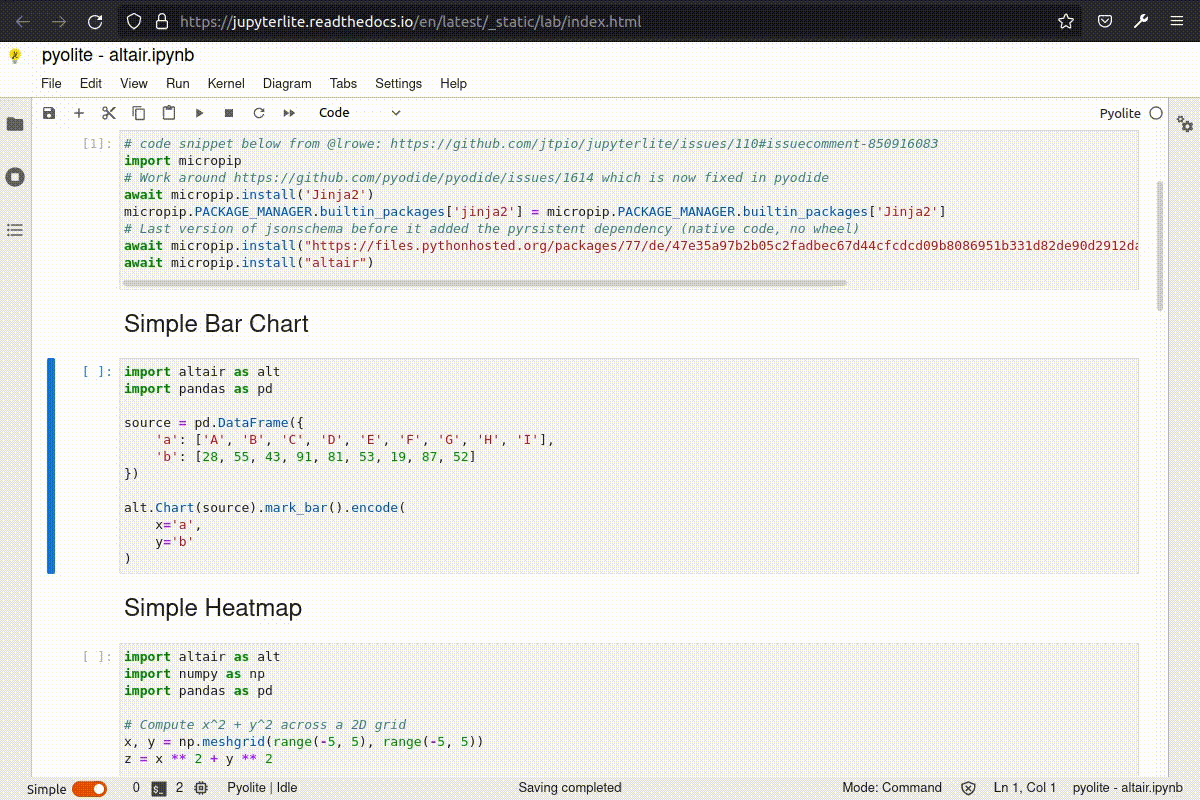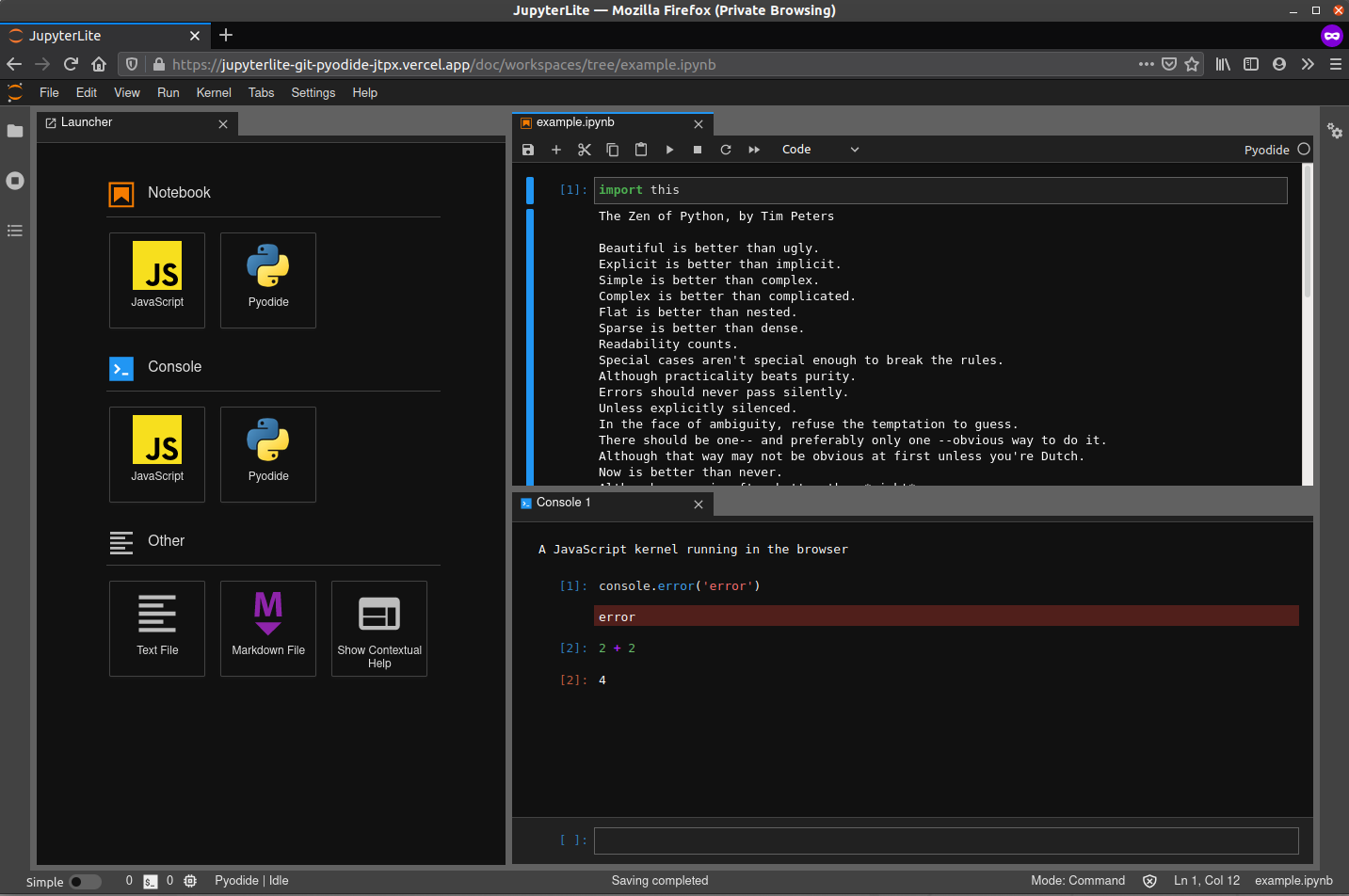JupyterLite¶
JupyterLite is a JupyterLab distribution that runs entirely in the browser built from the ground-up using JupyterLab components and extensions.
⚡ Status ⚡¶
Although JupyterLite is currently being developed by core Jupyter developers, the project is still unofficial.
Not all the usual features available in JupyterLab and the Classic Notebook will work with JupyterLite, but many already do!
Don’t hesitate to check out the documentation for more information and project updates.
✨ Try it in your browser ✨¶
JupyterLite works with both JupyterLab and RetroLab.
|
|
🏗️ Build your own JupyterLite 🏗️¶
Install jupyterlite from PyPI, which comes with the CLI and a pre-built, empty site
archive.
python -m pip install --pre jupyterlite
Use the jupyter lite CLI to build, check, or create a reproducible,
remixable archive of your site, then publish your built site to any static host,
such as GitHub Pages or ReadTheDocs.
|
description |
extras |
|---|---|---|
|
build an empty site from the bundled app archive |
|
|
add your own notebooks, labextensions, and settings |
|
|
try out your site locally |
|
|
check your site’s metadata |
|
|
create a single-file archive |
Features¶
For more details, see the JupyterLite documentation.
Browser-based Interactive Computing¶
Python kernel backed by Pyodide running in a Web Worker
Initial support for interactive visualization libraries such as
altair,bqplot,ipywidgets,matplotlib, andplotly
JavaScript and P5.js kernels running in an
IFrameView hosted example Notebooks and other files, then edit, save, and download from the browser’s
IndexDB(orlocalStorage)Support for saving settings for JupyterLab/Lite core and federated extensions
Basic session and kernel management to have multiple kernels running at the same time
Support for Code Consoles
Ease of Deployment¶
Served via well-cacheable, static HTTP(S), locally or on most static web hosts
Embeddable within larger applications
Requires no dedicated application server much less a container orchestrator
Fine-grained configurability of page settings, including reuse of federated extensions
Showcase¶
Jupyter Interactive Widgets¶

JupyterLab Mimerender Extensions¶

Matplotlib Figures¶

Altair¶

Plotly¶

Development install¶
See the contributing guide for a development installation.

